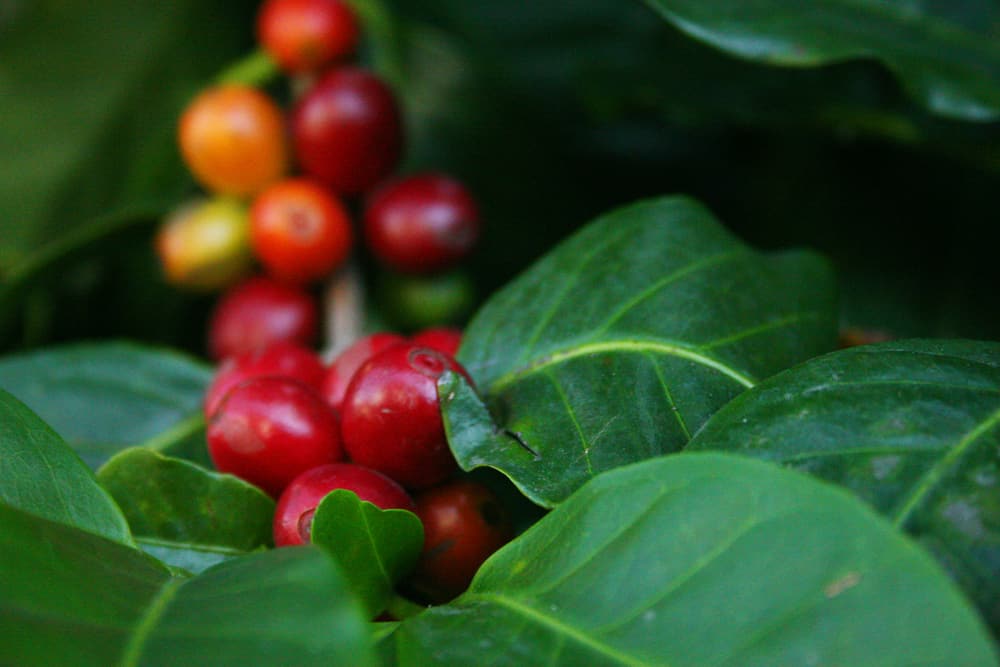Starbucks is better known for serving coffee than growing it, but one day your latte might be made with coffee developed by the Seattle-based company here in Costa Rica.
After a decade of research and development, Starbucks released five new coffee varieties developed at its Costa Rica-based experimental farm, Hacienda Alsacia, to the National Coffee Institute, ICAFE, according to a statement from the company on April 9. Coffee officials hope that the research will contribute to finding alternatives to current crops ravaged by the roya fungus and increasingly unpredictable Central American climes.
Central America has been reeling in recent years from a one-two punch of the roya outbreak and low international coffee prices. Despite the recent encouraging rally in aggregate global prices for coffee, Costa Rica and other countries continue to see falling exports, and many farmers have abandoned their caffeinated crop altogether.
The resulting threat to reliable sources of the high-quality coffee for which Central America is known has caught the attention of some large buyers and roasters. Starbucks took the extra step of purchasing its first farm and setting up a nursery to develop new varieties that hopefully lead farmers to produce better quality coffee at a lower price.
ICAFE Director Ronald Peters said the seeds Starbucks handed over to the institute could become available to producers in two years, after it completes its own tests.
“We’re very excited about these because they’re going to compliment the other two roya-resistant varieties we have like Obatá and Costa Rica 95,” Peters said.
Besides these varieties, ICAFE is also reviewing four additional varieties from Brazil that also have shown promise. Once the Starbucks varieties are green-lighted by ICAFE they will be available to PROMECAFE, a regional alliance of coffee-growing nations in Central America and Peru.
Any assistance is welcome. As the threat of a changing climate looms on the horizon, Central America has a dearth of researchers working on the development of new, hardier coffee varieties.
Starbucks has been working with coffee farmers in Costa Rica since 2004, when it opened its Farmer Support Center as a place for agronomists and farmers to work together and share information about increasing coffee productivity and quality. In 2013, Starbucks caught the world’s attention when it purchased a 240-hecatre farm outside San José. Hacienda Alsacia, which sits on rolling hills in the shadow of the Barva Volcano, became the company’s first and only experimental farm.
“We see this as part of our responsibility to contribute to the long-term supply of quality coffee,” Craig Russell, executive vice president of Global Coffee for Starbucks, told The Tico Times during a tour of the farm last November.
Company officials stressed in a previous interview with Bloomberg that they are not looking to vertically integrate their operation. Instead, Alsacia was designed as a way for the company to better understand the challenges farmers are facing and contribute resources to ensuring the region’s long-term success by developing new coffee varieties that could thrive in a changing environment.
Hacienda Alsacia’s nursery, led by Carlos Mario, as been experimenting with hundreds of varieties the old-fashioned way, looking for the right characteristics. Researchers and farmers cull the saplings by hand as part of the farm’s goal of finding high-yield, high-quality varieties that require less fertilizers and pesticides.
Mario, walking along a path of neon green coffee saplings at the farm Alsacia, said there are 250 varieties planted at the farm. The farm’s experiments include 26 varieties of Geisha, a drought-resisitant varietal that has gained a cult following among coffee cognoscenti.
In 2013, small bags of the farm’s harvest were given away to Starbucks employees, but Russell said that right now there is no plan to commercialize the coffee grown at Alsacia.
Peters said that finding new coffee varieties was urgent for the region after farmers have struggled through several tough years.
“Perhaps the most negative impact is disinterest on the part of farmers. Even when the farmer gets a good price from the previous harvest, when they see these [low] prices they’re looking to the future. They’re not investing in fertilizers, not taking care of their crop,” he said.
The research that Starbucks contributed to ICAFE, along with assistance from Texas A&M University’s World Coffee Research and others could help secure the coffee industry for the next generation.
“This is a step forward for the coffee agriculture across the region,” Peters said. “All this helps to find the plants we’ll need in the future.”






